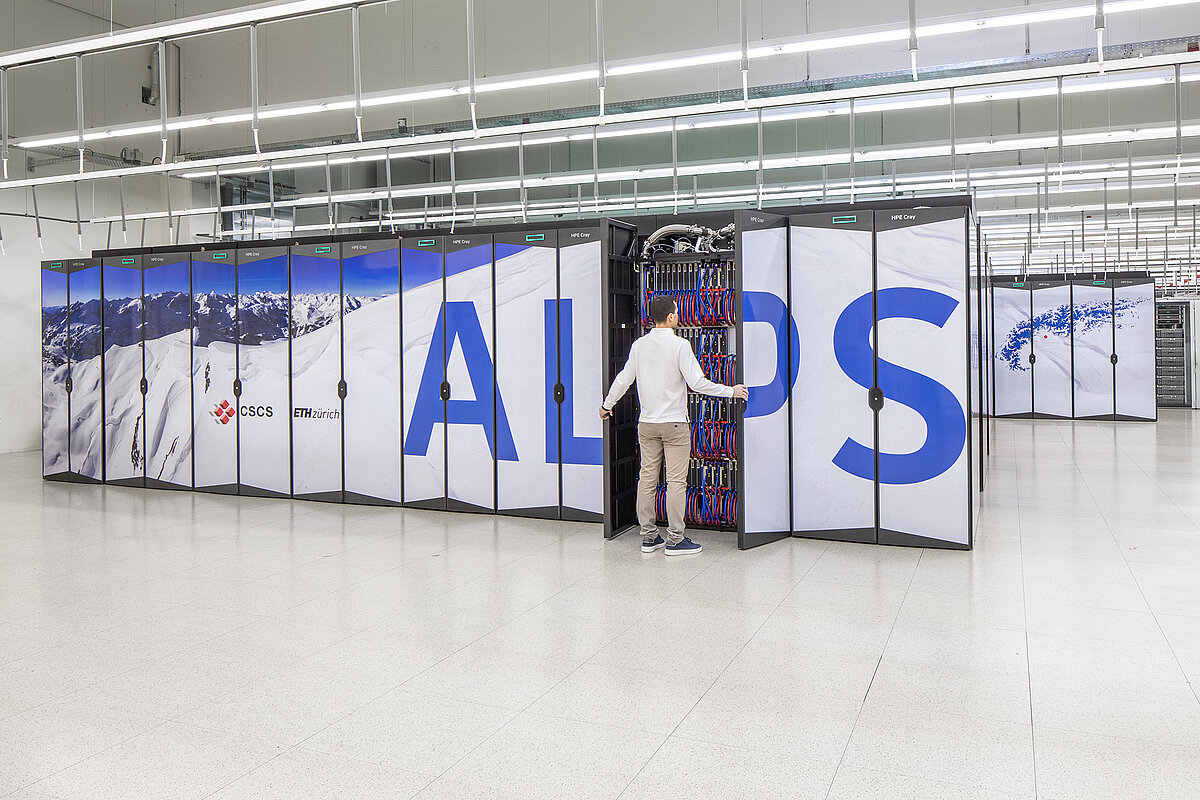
AI Meets Supercomputing: The Alps Supercomputer’s Role in Transforming Science
Artificial intelligence has surged beyond the initial excitement of its capabilities, emerging instead as a cornerstone of innovation within the enterprise and research sectors alike. In a groundbreaking report by Kong titled API Impact Report 2024, it’s revealed that a phenomenal 92% of developers and business executives regard AI as a critical priority for their organizations. This universal embrace of AI promises to generate unprecedented levels of economic growth and technological innovation, with APIs acting as the vital links enabling these advancements.
 The confluence of AI technology and supercomputing is laying the groundwork for significant scientific discoveries.
The confluence of AI technology and supercomputing is laying the groundwork for significant scientific discoveries.
The API Impact Report 2024, which garnered insights from 747 IT professionals, paints a vivid picture of how AI is poised to create a staggering cumulative economic impact of $43 trillion by 2030. Such metrics clearly indicate the necessity for corporate leaders, particularly CXOs, to elevate their API strategies in tandem with their AI initiatives.
Unleashing Innovation Through AI and APIs
Organizations are increasingly recognizing that the promise of AI is beyond mere rhetoric—83% of leaders report tangible business value from their AI investments, having successfully launched new products and services over the past year. This burgeoning trend underscores the need for rapid integration of AI across business practices, lest companies risk falling behind those who are already seizing these new opportunities.
Moreover, while ChatGPT continues to dominate as a widely-adopted large language model, earlier statistics indicate that competition remains fierce. With Microsoft Azure AI and Google Gemini wielding significant influence as well, organizations appear committed to exploring multiple AI solutions. This trend towards a multi-LLM strategy reflects the increasingly complex requirements of various business applications.
The Game-Changing Alps Supercomputer
On the forefront of this technological evolution in AI is Switzerland’s Alps supercomputer, ranking as the sixth most powerful computer globally. Replacing the previous computational giant, Piz Diant, the Alps supercomputer boasts 20 times more computing power and has revolutionized the nation’s scientific research capabilities. Operating across Switzerland and Italy, its resources have become crucial for researchers focusing on environmental modeling, health data analysis, and understanding cosmic phenomena.
Professor Thomas Schulthess from the Swiss National Supercomputing Centre (CSCS) emphasizes the supercomputer’s purpose: “We must be very disciplined in how the infrastructure is used.” This reflects the intended focus on public scientific endeavors rather than commercial applications, establishing a gatekeeper role to ensure quality in data processing. Only researchers meeting specific criteria—such as collaboration with Swiss universities—will gain access to this high-performance computing system to maintain research integrity.
 The Alps supercomputer enhances research capabilities across multiple disciplines, catalyzing scientific advancement.
The Alps supercomputer enhances research capabilities across multiple disciplines, catalyzing scientific advancement.
Beyond validated scientific inquiry, there is a concerted effort to utilize the Alps supercomputer for training sophisticated AI models, including the Meditron system—a large language model focused on processing and filtering medical data. Its goal is clear: to combat misinformation in health data, showcasing the supercomputer’s potential in enhancing diagnostic accuracy in regions with limited medical infrastructure.
Addressing the Challenges of AI Integration
Still, the integration of AI technologies into existing infrastructures raises significant challenges. Nearly 60% of IT professionals note concerns regarding data privacy and regulatory compliance when merging AI services with established systems. The CSCS is acutely aware of these hurdles and emphasizes the need for careful data governance to avoid compromising the quality of research outcomes.
 AI technologies are increasingly integral to research, yet they introduce complexities that require thoughtful navigation.
AI technologies are increasingly integral to research, yet they introduce complexities that require thoughtful navigation.
Looking forward, the potential impact of AI on the workforce cannot be understated. While 57% of respondents in the API report indicated AI would enhance their work, a concerning 35% expressed that AI adoption may progress too rapidly, potentially leading to job displacement. However, it is essential to hold onto the optimism that AI could augment productivity and unlock entirely new job opportunities as well—three out of four executives believe that AI will propel innovation in their sectors.
Conclusion: The Path Ahead for AI and Supercomputing
For CXOs and industry leaders, the lessons are clear: adopting AI is not merely an option, but a necessity for enduring success in an evolving digital landscape. The Alps supercomputer is emblematic of a joint future where AI, supercomputing, and APIs converge to redefine scientific inquiry and economic strategies, laying the groundwork for a future rich with possibilities.
To navigate this landscape effectively, leaders must embrace the interconnected nature of AI technologies and the platforms that propel their usage, ensuring that they not only keep pace with innovation but also lead in powered insights that could very well determine their relevance amid a competitive and fast-changing field.














